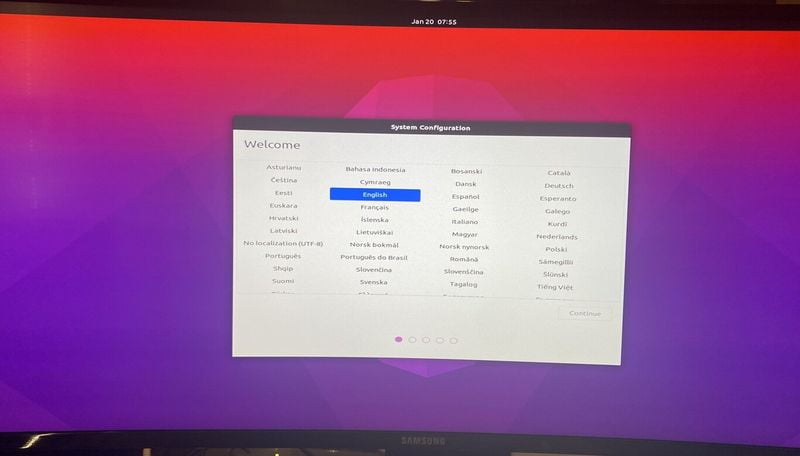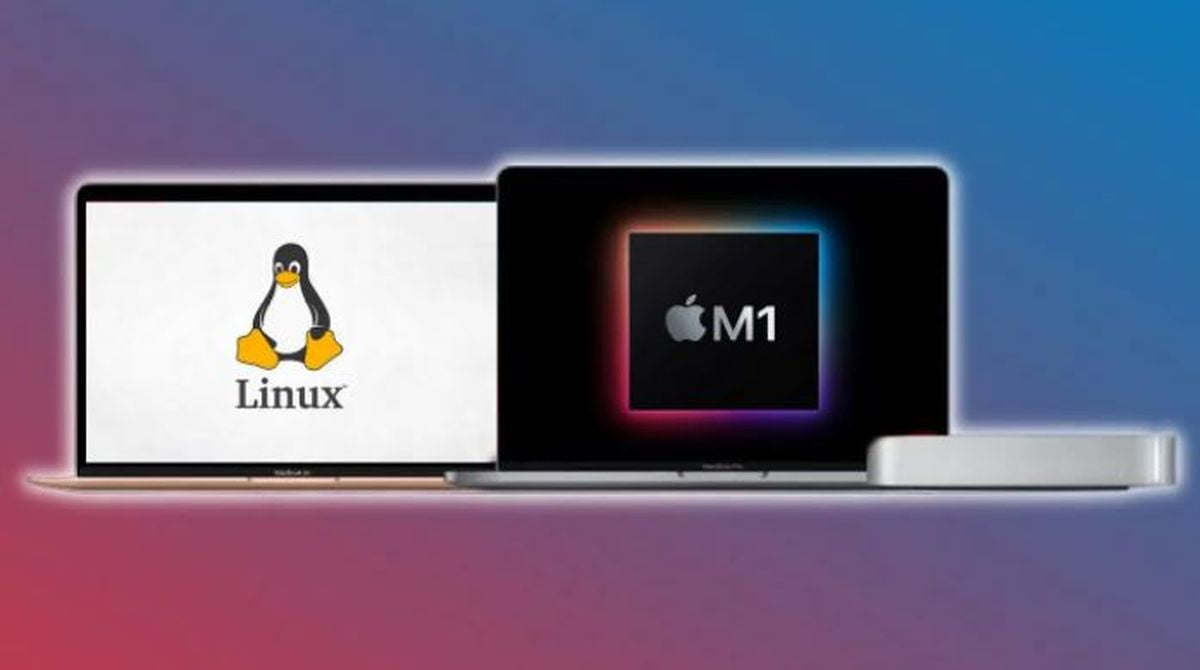A first Linux distribution which is already compatible with M1 Macs, but development is ongoing. Since the first Macs with M1 processors arrived, developers have been working to adapt their apps to the new architecture. Others have been adapting entire operating systems, as is the case of Cornelius, which has recently presented the first Ubuntu distribution compatible with Macs with M1.
A first Linux distribution is already compatible with M1 Macs, but development is ongoing
According to the announcement made on Twitter by Cornelius CTO Chris Wade, the famous Penguin OS distro is “fully usable” on Macs with M1. In this version, full support is offered for the user interface in addition to USB, I2C, and DART systems that until now were not available in any Linux porting for the new Macs.
Linux is now completely usable on the Mac mini M1. Booting from USB a full Ubuntu desktop (rpi). Network works via a USB c dongle. Update includes support for USB, I2C, DART. We will push changes to our GitHub and a tutorial later today. Thanks to the @CorelliumHQ team ❤️🙏 pic.twitter.com/uBDbDmvJUG
— Chris (@cmwdotme) January 20, 2021
The system, however, still has several limitations, such as the lack of hardware acceleration or the need to use adapters for certain Mac interfaces, such as the network interface. In any case, it is interesting to see how quickly this porting has been achieved and also the interest of developers in adapting to the ARM architecture, which, among others, is used by Macs with M1.

Cornelius is a specialist in ARM device and platform virtualization and will continue to work on porting Ubuntu. Meanwhile, the current version is available on GitHub so that we can install and test the system, although not exempt from the difficulties of still early development.
While we await the launch of the new 14- and 16-inch MacBook Pro, the arrival of a redesigned iMac, and the rest of the computers with Apple silicon processors, it is clear that the transition on the software side is going smoothly. The truth is that the apps don’t need to be adapted to work, that’s what Rosetta 2 takes care of, but in doing so they gain in performance, stability, speed, etc. It is nice to see that the development community has so much interest in migrating applications to the new architecture, every day more and more apps are universal binaries and soon it seems that we will have more operating systems ready to run on our new Macs.





